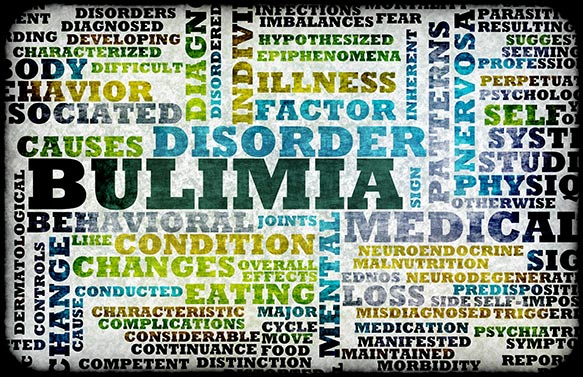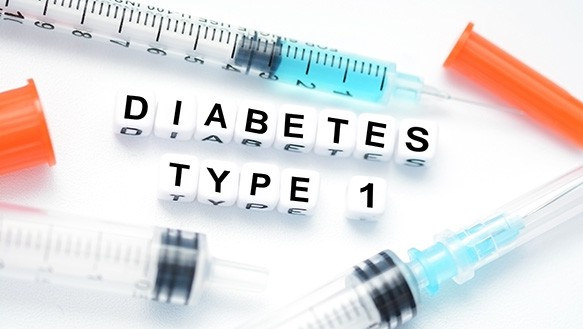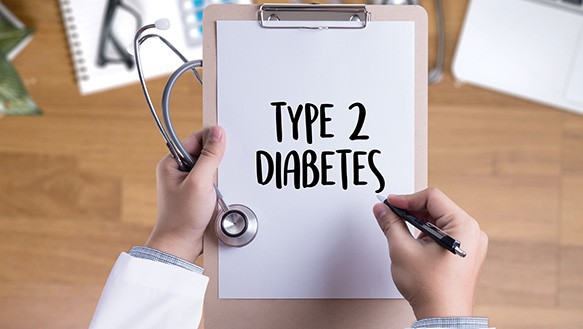Most often, we think of weight loss as a good thing. It can help prevent diabetes, arthritis, cancer and many more medical issues. However, when weight is lost rapidly, it’s not a healthy thing and can be a sign of something more troubling.
Some cardiac diets do recommend rapid weight loss under medical supervision, and bariatric surgery also tends to cause rapid weight loss. In these cases, under medical supervision and with appropriate diet, vitamins and minerals, people can become healthier.
Other than these situations and a few others, rapid weight loss is not recommended. If you’re not trying to lose weight, then losing those pounds at too rapid a rate could mean diabetes or another medical condition.
Weight loss that you didn’t try to achieve can be a sign of many things. If you are eating the same way as you have always been and you are not performing any extra activities, your weight should then remain steady. Your body weight is affected by many things: how many calories you consume, your level of health and your age can all be factors.
Once you’ve reached middle age or have made it through menopause, you should keep a steady weight unless you are overeating and being inactive. You may still gain a few pounds here and there, and even lose a few pounds along the way. At holidays, people can gain up to ten pounds if they’re not careful.
It’s when you lose weight for no apparent reason that you may need to look for an underlying cause of why you are dropping weight so fast. For example, have you recently dropped about 10 pounds in just under a month without changing your diet or doing anything drastic to lose the weight? Your alarm bells should go off!
Contents
Candice’s story
Candice called the clinic wondering about her recent weight loss. She loved that she had lost weight, but she was somewhat concerned that she had lost 12 pounds over two months without having to try to lose weight.
Her doctor ran some tests and discovered that she was developing Type 1 Diabetes at the age of 23. Candice started insulin therapy and later switched to an insulin pump and continuous glucose monitor (CGM).
As her blood sugars began to stabilize again so did her weight. Her next goal is to lose around ten pounds in a healthy way, without high blood sugars and loss of muscle and fat.
What Candice learned was that rapid weight loss can be a sign of a serious illness. In her case, it was diabetes. Let’s look at rapid weight loss, how it can be related to diabetes and other conditions and learn about risks and complications associated when we do lose weight too quickly.
I recommend reading the following articles:
Causes of unwanted weight loss due to diabetes
Not all unexplained weight loss is due to diabetes, but it can and does occur in Type 1 and Type 2 Diabetes. Therefore, rapid weight loss may be a significant sign that you are developing one of these endocrine system conditions. It’s not the only condition that could be the cause of your rapid weight loss. We will later explore the other causes that can cause rapid weight loss here. First, let’s talk about diabetes.
How is it a symptom of diabetes?
It can be of concern if body cells don’t get enough glucose, or blood sugar, because our body cells need energy to function and carry out all the cellular processes that keep our body functioning.
If body cells don’t receive enough energy, they must get it from somewhere. Generally, they will pull energy from fat and muscle, causing weight loss.
The combined affect of the “three polys,” polyuria, polydipsia and polyphagia, increase the chances of weight loss. Blood sugar is not getting to the cells, so the person experiencing these symptoms often feels hungry all the time (polyphagia).
The person who is developing diabetes will also have frequent urination, or “polyuria.” Sugar is lost through the urine more often, so calories are lost. With polydipsia, or frequent thirst, the body becomes dehydrated from loss of urine and that’s when the thirst sets in.
All these affects combined set the recipe for rapid weight loss, especially when referring to Type 1 Diabetes. When Type 1 Diabetes first sets in, the person will experience very high blood sugars, often greater than 1,000 mg/dL.
The person is essentially in Diabetic Ketoacidosis, and the body has started to shut down insulin production. This produces ketones, which are essentially acids in the blood. When there’s no insulin or insulin levels are very low, muscle and fat is used as fuel for the body causing weight loss.
In type 1
Weight loss is especially a sign of Type 1 Diabetes, because people with type 1 don’t make any insulin. In the beginning of the auto-immune attack that destroys the beta cells in the pancreas that produce insulin, they may produce some insulin, a phase called the “honeymoon” effect.
However, this only occurs at the beginning of the disease state. Still, it’s not enough insulin produced to open the door to the cell and let the blood sugar in. That’s what insulin essentially does. It’s the gatekeeper.
When a person is first being diagnosed with Type 1 Diabetes and their insulin levels drop rapidly following destruction of beta cells, their cells are starving. That’s when they must pull the energy from the muscles and cells.
The body starts to break down protein for energy instead of using the nutrients from the food that we eat. A person newly diagnosed with Type 1 Diabetes can appear malnourished due to muscle wasting and loss of fat stores.
When Type 1 is starting to set in, it’s not uncommon for a person to lose up to five percent of their weight in around a week’s time. Loss of weight is much more severe with Type 1.
In type 2
It can also be a concern for people with Type 2 Diabetes if they have lost many of the insulin producing beta cells in the pancreas, losing the ability to produce enough insulin. It doesn’t happen in every case, and often when only some beta cells are destroyed, and others remain able to function adequately, you won’t see any weight loss at all.
Notably, in Type 2 Diabetes, there is some insulin production loss from loss of beta cell function and also an inability to use the insulin the body makes on its own adequately.
Recognizing signs of weight loss
If you lose more than about ten pounds (about four and a half kilograms) or more than five percent of your weight in a short amount of time, that’s too much weight loss to be healthy.
If you lose 10 on up to 20 pounds over a period of two or three months, it’s just not healthy. You are most likely wasting muscle. Muscle burns calories, even though it weighs more, so we need it.
What increases the risk of weight loss?
Simply put, a calorie deficiency puts you at a greater risk for weight loss. In diabetes, the sugar is sent out through the kidneys and they can even be damaged by all this sugar flowing through the intricate tubules that are a filter to create bodily waste.
Treatment options
Treatment options for weight gain include increasing calories and good fats. You will still need to make sure that you get enough physical activity in to stay healthy.
Adding vitamins and minerals into your diet may help you to gain weight. You could pick up a multivitamin or ask your doctor to check your vitamin and mineral levels and prescribe what you need.
You can have a deficiency of many different vitamins and minerals in your diet. Try eating a well-balanced diet and include extra calories. Milkshakes can be on your list to help you gain weight even if you have diabetes (provided you count your carbohydrates and keep serving sizes very small, at one half cup).
If it’s your schedule, your family and/or personal life causing you stress or school is too busy or you start taking a new medication, you can drop some weight.
If you are unsure of how you can add extra calories to your meal plan and what foods to eat, consider seeing a nutritionist who can help you incorporate the right foods with the right amount to help you gain weight.
How can I reduce the risks of weight loss?
One factor that we are unable to change is our age. Elderly people often don’t eat enough and lose weight due to loss of taste and smell, medications or being a shut-in who is socially isolated.
Though there is no way to control how we age over time, there are ways to reduce the risk of losing weight in the elderly. Providing more social activities, being delivered Meals on Wheels and attending senior centers are just some of the ways that seniors can decrease their risk for weight loss.
For people with diabetes, anytime your blood sugar is too high, you are at risk for weight loss as your body must get energy from somewhere, so it will pull from muscle and fat stores.
To decrease the risk of weight loss with diabetes, keep your blood sugars in your target range and your A1C below 7 percent. Eat a healthy diet, count your carbohydrates and exercise most days of the week.
Are there any long-term risks or complications to weight loss?
Malnutrition can cause all sorts of problems in every organ. Rapid weight loss pulls from healthy muscle and fat stores. When someone is too thin, they are at risk for more medical problems and illnesses. Very thin people tend to get wrinkles with age.
When weight is lost too fast, its ok to be alarmed. You should speak with your healthcare provider immediately to prevent any risks that the rapid weight loss may cause to your body and organs.
Other causes of weight loss besides diabetes
There are plenty of other reasons that can also cause weight loss besides diabetes. Some besides diabetes that can cause you to unintentionally and rapidly lose weight are:
- Some medications (thyroid medications, chemotherapy drugs for cancer and chronic laxative use as seen with anorexia)
- Depression and anxiety
- Cancer
- Celiac disease or ulcerative colitis
- Diverticulitis or diverticulosis
- Addison’s disease
- Irritable Bowel Syndrome (IBS) – chronic diarrhea
- Anorexia Nervosa
- Bulimia
- Diabulimia
- Dementia and Alzheimer’s Disease
- Pancreatitis
- HIV (AIDS)
- Too much calcium (hypercalcemia)
- Overactive thyroid (Hyperthyroidism)
- Infection in the body
- Malnourishment
- Parkinson’s Disease
- Cocaine, amphetamines and other recreational drugs
- Smoking and use of nicotine and tobacco containing products
- Tuberculosis (TB)
When should I contact my doctor?
Call your doctor if you have lost more than 10 pounds or 4.5 kg in a short period of time up to about six months. This is about five percent of your body weight.
If it’s diabetes that’s causing your weight loss, your doctor will then start you on the appropriate regimen for your unique case. Remember losing weight might seem like a good thing but it's not always the case.
Can I gain back the lost weight?
Yes, you can gain back lost weight if you have diabetes. Your weight will stabilize more if your blood sugars are stable. Work with your doctor and healthcare team if they are not quite where they need to be.
If you’ve lost weight due to another condition, you can gain that weight back too. Often, working with a Registered Dietician can also help you to figure out the best foods to eat without gaining too much weight back. It’s also always important to eat lean meats, whole grains, fresh fruits and vegetable while sticking with unsaturated fats.
Further reading:
Over to you
We hope that you have learned something about weight loss and how it can be a symptom of either Type 1 or Type 2 Diabetes. You should have also picked up information about how rapid weight loss can relate to other medical conditions.
Have you experienced rapid weight loss yourself? Was it related to diabetes or another condition? Tell us your story in the comments box below.
TheDiabetesCouncil Article | Reviewed by Dr. Jack Isler MD on May 31, 2020












